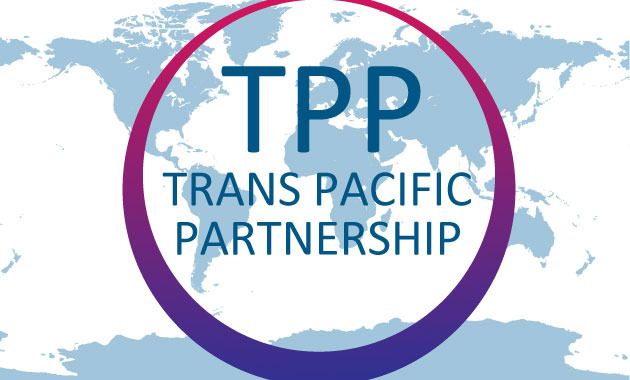TPP has long-term advantages
VGP – Viet Nam could experience increasing trade deficit in the initial stage of joining into Trans-Pacific Partnership (TPP) due to higher foreign direct investment.
.

.
However, the country’s exports will be higher after production becomes stable, thus narrowing the difference in trade balance.
Mr. Truong Dinh Tuyen, former Trade Minister, told a press meeting held in Ha Noi on October 9 that the trade deficit will not be bad for the economy as FDI into Viet Nam increased several times in 2007 in comparison with 2006 after the country’s admission to the World Trade Organization (WTO).
Sharing his ideas, Deputy Minister of Industry and Trade Tran Quoc Khanh, who is also the head of the Government’s negotiation delegation on international trade and economic issues, said the opportunity to access the goods market will be increased as the tariffs are reduced to zero.
However, TPP member countries such as Japan and Canada have goods structures that complement Viet Nam’s, he said.
“In recent years, Viet Nam has continuously seen trade deficit. The country’s goods structure tends to complement that of other countries, thus resulting in more exports than imports,” Mr. Khanh said.
He said the TPP will expand Viet Nam’s GDP by US$23.5 billion in 2020 and US$33.5 billion in 2025. The nation’s export turnover will increase by US$68 billion in 2025. In particular, the zero import tariffs in large markets like the United States, Japan, and Canada will create a huge advantage for Vietnamese exports.
He said according to calculations, Viet Nam could have the highest benefit among 12 countries in the TPP. However, he also emphasised that the pharmaceutical and livestock industries will need enough time for restructuring and overcoming difficulties despite the challenges ahead.
The deputy minister said this is not the first time for Viet Nam to integrate into the international market and the government has always paid attention to the sectors.
“Difficulties will be seen when the imported taxes on pork and chicken meat are reduced to zero. The livestock will have 10 years to prepare for the integration,” he said, adding that farmers should not be worried as the effect will not be too big.
According to the ministry, the garment and textile industry will benefit most from the TPP. In the first half of the year, exports of garments and textiles to TPP member countries accounted for 70 percent of the sector’s total value. It is expected that the market share will double when Viet Nam joins the TPP.
The report from the ministry also revealed that apart from garments and textiles, shoes, agriculture, forestry and seafood will see major opportunities to increase their exports.
Vietnamese businesses will have a chance to participate in the procurement purchasing market in the U.S., Japan and Canada. This could be an interesting channel for local exports.
“Viet Nam has gained favourably and is flexible about joining the TPP. I confirm that the results of the negotiation in the TPP are fair,” he said.
The deputy minister said a member of the negotiation delegation will review the legal aspects to ensure commitment and declarations for the correct results of the negotiation.
The agreement’s contents will be widely published in the first half of this month.
“The signing of the agreement will be implemented after completing the step. It will take 18 to 24 months to be ratified by the parliaments of TPP countries,” he said.
Source: chinhphu.vn
